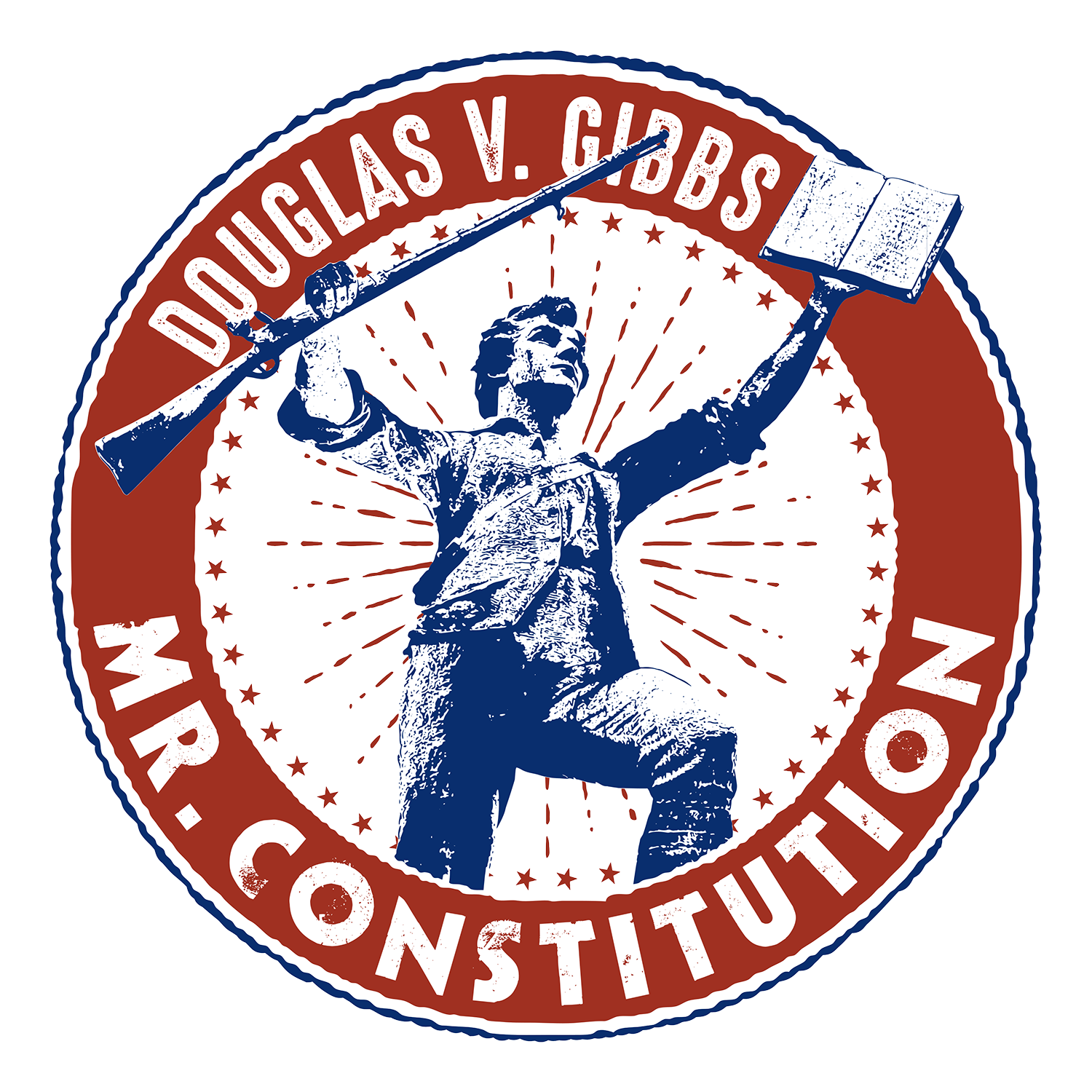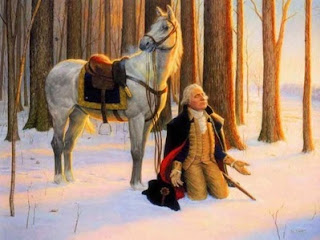Posted by Douglas V. Gibbs
Author, Speaker, Instructor, Radio Host
The journey to
establishing the United States of America was a unique one. It all began as an appeal to the British, a peaceful
campaign calling for compromise and fair treatment. The pleas regarding their grievances were met
with refusals, and ultimately an increased military presence by the British
Empire on the streets and in the communities of the American Colonies. Neither
the British Parliament, nor King George, were interested in negotiating with
the colonists who they viewed as being nothing more than petulant children on
the other side of the Atlantic Ocean.
Then, in 1775, King George charged all Americans of being guilty of “open
and avowed rebellion,” and parliament passed legislation opening the Americans
up to unreasonable seizures, and the burning of colonial towns. Shortly after, war ships, more British
troops, and foreign mercenaries arrived to put down the rebellion.
The Americans declared independence
the following year. The Declaration of Independence,
penned by Thomas Jefferson, followed the lead of most of the colonies and
counties who had already issued their own lists of grievances detailing the
abuses of power by the British. The
Americans demanded the establishment of a new government, one grounded in the
idea of liberty, self-government, and a system built hand in hand with the
consent of the governed.
The people believed in a unique
concept that rather than being subjects of some national or monarchal system,
they should be individual, self-consenting citizens who had the right to overthrow
their government when it abused their Creator-given natural rights over a long
period of time.
July 2, 1776, the Continental
Congress voted to declare the independence of the American colonies from
English rule.
On July 4, 1776, they approved the
final edited version of the Declaration of Independence.
The war began rough for the
Americans. After a run of devastating
defeats with no significant successes, in the cold of Winter, December 1776,
George Washington and his rag-tag Continental Army were in desperate need of a
victory. What lay ahead of them was the
Battle of Trenton, a risky assault against highly trained and well-equipped
Hessian mercenaries. With horrible
weather chilling Washington’s roughly 2,400 troops, many of whom were operating
without shoes in the wet snow, sleet and driving rain, on Christmas Day Washington’s
army crossed the Delaware River in the dead of night.
The weather worsened as they worked
across the body of water, after which they marched for several more hours,
arriving much later than planned. Some
officers proclaimed they should call of f the attack. Some soldiers were having problems with their
muskets, which were freezing up in the icy temperatures. They were instructed to make sure their
bayonets were affixed, in case their rifles failed to fire. Washington knew that Trenton was a
crossroad. Either the war effort would
finally die as a complete failure, or the hope of America’s independence would
finally begin to be realized.
The surprise attack turned out to be
a raging success. The battle lasted a
mere hour, with 900 of the 1,350 Hessians surrendering in an instant. The Americans suffered few casualties, and
the occupation of the Hessian stronghold relinquished for the Americans much
needed equipment and ammunition.
A year later, during the even worse
Winter of 1777-1778, the war reached what we now know was among the bleakest
times of the war for the Americans.
Again, George Washington led the troops against harrowing odds to
victory, but in the case of Valley Forge, a local Quaker Tory by the name of
Isaac Potts noticed George Washington in prayer on his knees beside his horse
near the Continental Army’s encampment.
In the Spring of 1778, the war broke
the other way. A dramatic turnaround
occurred that finally saw the Americans gaining momentum, and moving in a
direction that could possibly lead to victory.
The war lasted until 1783, and ended
in victory for the rugged Americans.
And, while there are many harrowing stories about what those brave
revolutionaries endured, it is important that we remind ourselves that when
things were at their worst, when the chill of Winter was making things
difficult, and the frustrations of defeat could have easily led the Americans
to give up, for liberty they fought on.
For liberty they stood firm. For
liberty they fought through the most difficult times. And, during it all, they were in prayer
because they realized that with a firm reliance of Divine Providence, victory
was at hand. Freedom was within their
reach. The dream of American Liberty was
ready to be launched, not just for them and their loved ones, but for all
future generations. They died on those
fields, they fought in the snow and driving rain, and they signed the founding
documents as traitors in the eyes of the British Crown for you. For us.
For those not yet born.
The least we can do is fight the
good fight to maintain it.
— Political Pistachio Conservative News and Commentary



